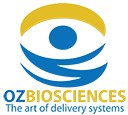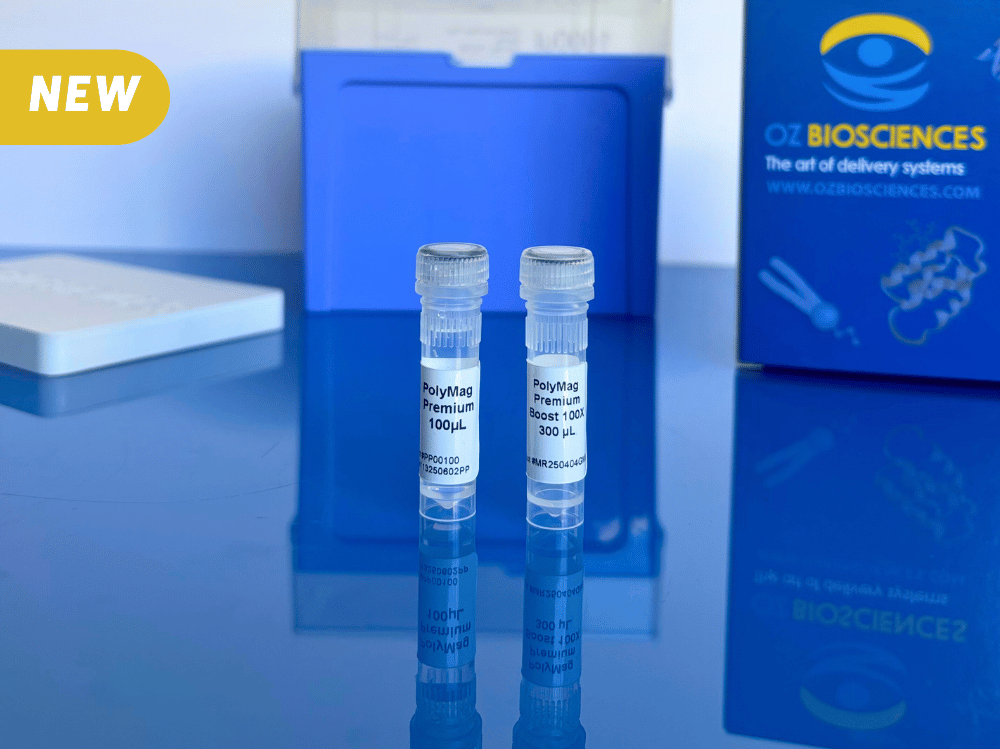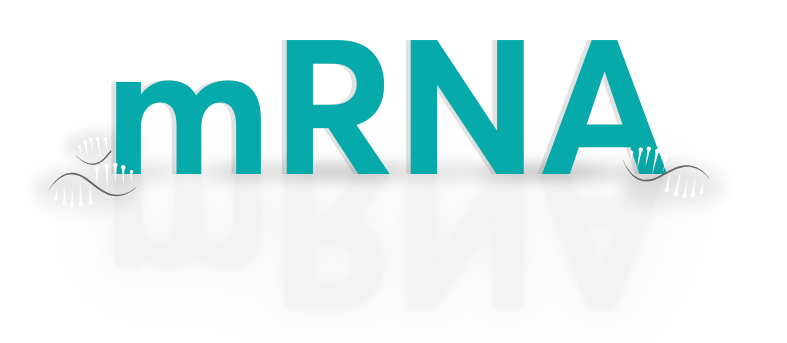Summary of key points
-
The evolution of mRNA production
-
Traditional Challenges in mRNA Synthesis
-
Expansion of our product range: Introducing the new mRNA Production Kits
-
-
Introducing our mRNA Production Kits
-
Kit 1: IVT Kit
-
Kit 2: Poly(A) Kit
-
Kit 3: Capping Kit
-
Introduction
As scientists dedicated to the field of biotechnology, we recognize the crucial role mRNA production plays in scientific and therapeutic advancements. That's why we're excited to unveil our latest development: three cutting-edge kits meticulously designed to enhance your mRNA production process.
The evolution of mRNA production
Traditional challenges in mRNA Synthesis
For decades, scientists have faced limitations with traditional methods of mRNA synthesis. Issues such as low yields, scalability constraints, and time-consuming protocols have hindered progress in the field, slowing down the pace of innovation.
Expansion of our product range: Introducing the new mRNA Production Kits
However, our commitment to meeting the evolving needs of the scientific community drives us to expand our product range. Therefore, we're thrilled to introduce our latest innovations in mRNA synthesis. These new kits enrich our existing catalog, offering a variety of features and enhanced performance to meet your research requirements.
Introducing our mRNA production kits
Kit 1: IVT KitOur IVT Kit offers a revolutionary solution for in vitro transcription of linear plasmid DNA or PCR fragments using T7 polymerase. With a yield of approximately 100 µg of RNA per µg of DNA template, this kit ensures reliable synthesis, providing a total of 2.5 mg of RNA. Each kit includes all necessary components for 25 reactions, offering both versatility and consistency for your research needs. Additionally, it's essential to note that the yield may vary depending on factors such as DNA template length, sequence, and purity. Shorter templates typically yield a lower mass but a higher molar yield of RNA product. The kit is also provided with a control template, facilitating an expected yield of 100µg of RNA based on the template provided. |
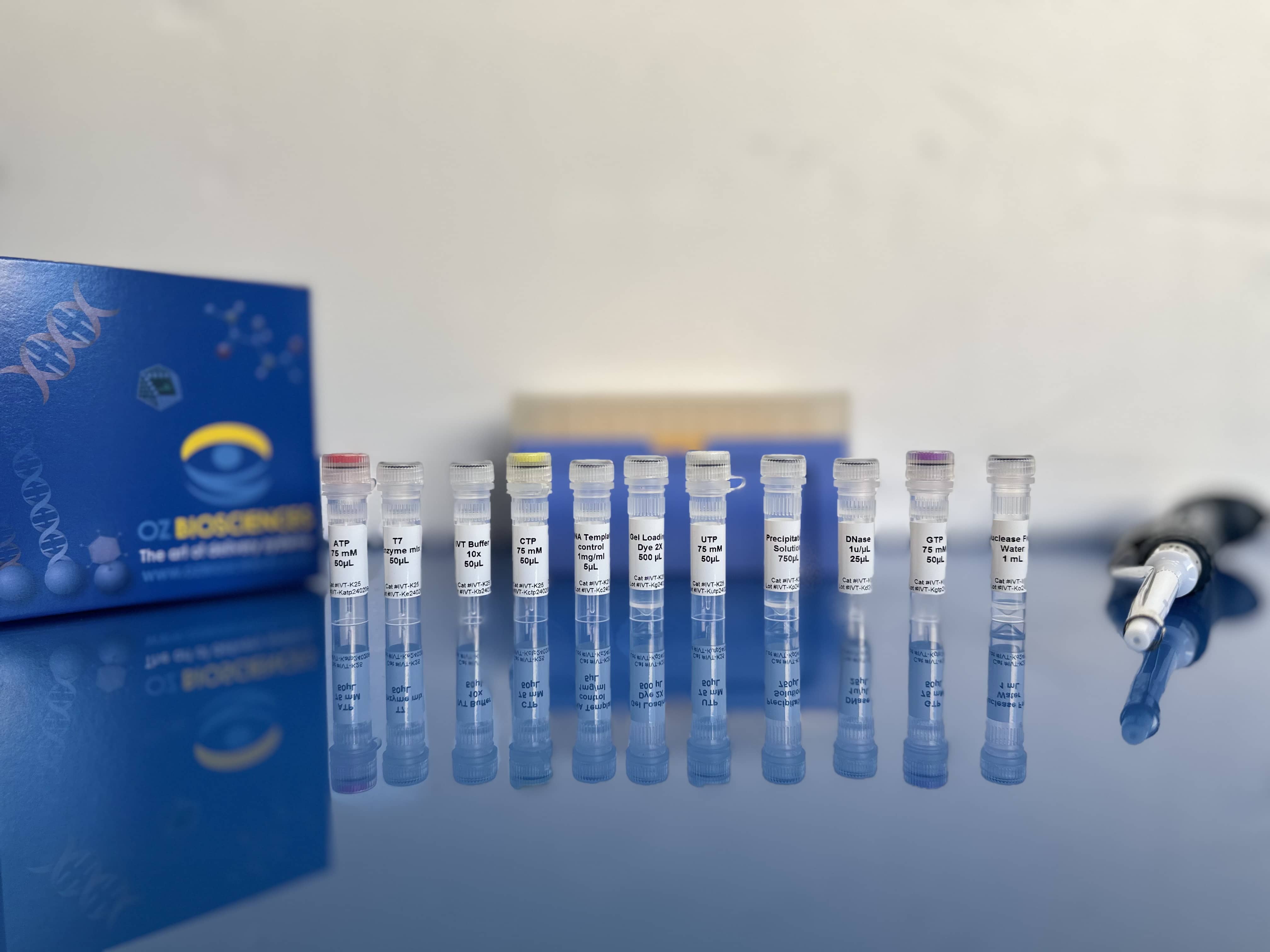 |
Kit 2: Poly(A) KitOur Poly(A) Kit facilitates the enzymatic addition of a poly(A) tail to RNA molecules, independently of the template. This process enhances mRNA translation, stability, and nucleo-cytoplasmic transport, improving overall RNA functionality. With components for efficient polyadenylation in just 45 minutes at 37°C, this kit offers convenience and reliability for optimizing mRNA for a variety of applications. It's important to mention that the kit provides approximately 200 nucleotides per reaction, based on 100µg of RNA. The presence of a poly(A) tail has been shown to have significant effects on mRNA function, making this kit a valuable addition to your research toolkit. |
 Kit.jpeg) |
Kit 3: Capping KitOur Capping Kit is designed for in vitro enzymatic capping of mRNA, offering the addition of either a Cap0 or Cap1 structure to the 5' terminus. This process enhances mRNA stability and translation efficiency, crucial for downstream applications. With components including ribonuclease inhibitor, 2’O-methyltransferase, and Vaccinia Capping Enzyme, this kit provides all necessary tools for achieving superior mRNA performance. It's worth noting that the choice between Cap0 and Cap1 structures allows for flexibility in optimizing mRNA for specific applications. Additionally, the kit offers convenience with all components provided for efficient enzymatic capping, ensuring reproducible results in your research endeavors. |
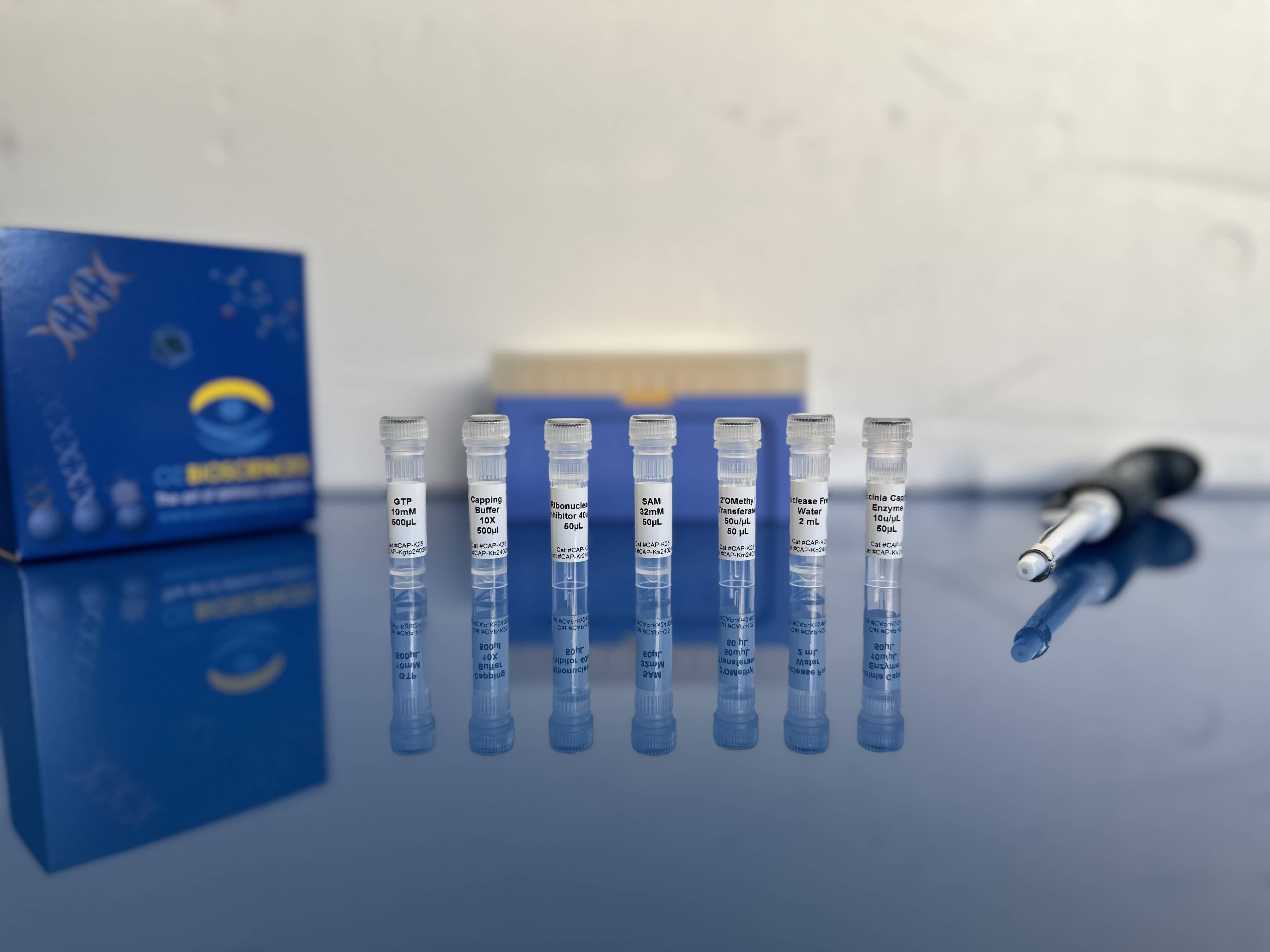 |
Conclusion
In conclusion, the introduction of our three new mRNA production kits marks a significant step in our commitment to providing innovative solutions to researchers and biotechnology professionals. With these additions to our catalog, we strengthen our commitment to meeting the changing needs of the scientific community. Don't miss the opportunity to enhance your research – explore our new kits today and embark on a journey of scientific discovery enriched by our latest advancements.
